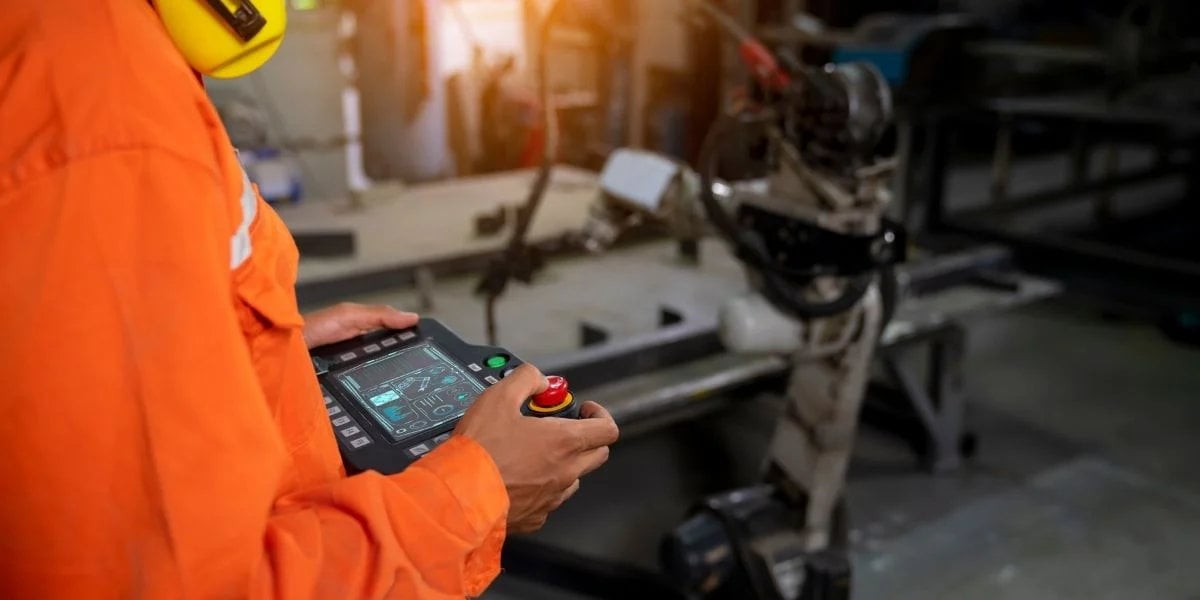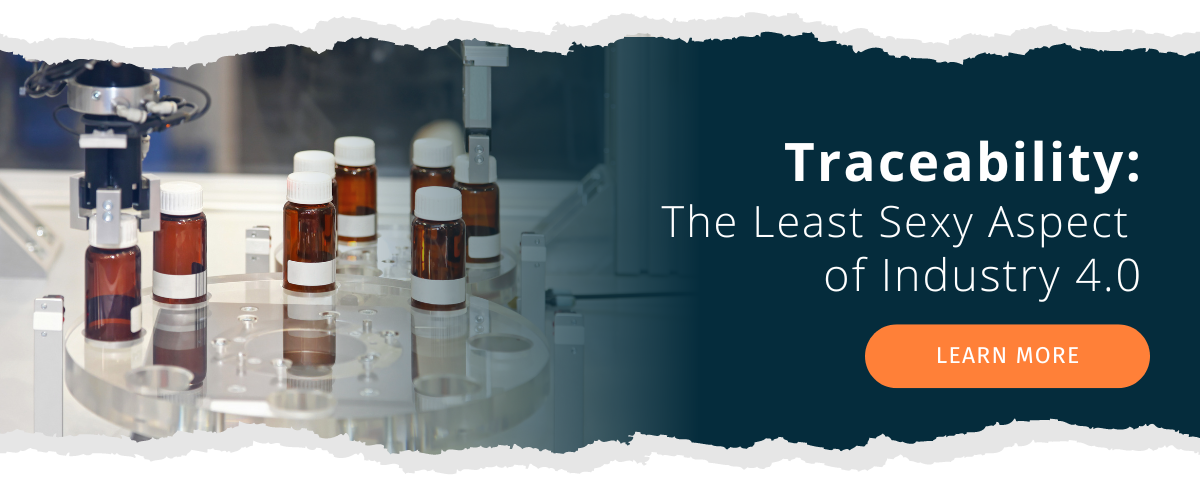What is Industrial AI and Why Does It Matter to Process Manufacturers?
Industrial AI, also known as AI in Manufacturing, is the use of artificial intelligence...

Industry 4.0 is upon us, and with it comes new competitive advantages and great financial returns for the manufacturing sector. If you're not sure what Industry 4.0 is or how it can benefit your business, read on for everything you need to know.
We'll explain the basics of this transformative technology, and show you how to get started today.

Industry 4.0 is all about real-time data collection: turning that data into actionable insights; generating reports to drive decision making; using it to automate quality controls and monitors; ultimately generating predictive models for everything from maintenance to planning to forecasting.
Within the manufacturing industry there are many new innovations in automation and data connectivity across production lines helping meet changing market demand. The innovations penetrating this sector include advanced network systems, smarter machines with native data connectivity and monitoring, smart sensors, and cloud computing for storage and data processing.
A backbone to Industry 4.0 is IoT, which is the network connection technologies used in machines and devices such as smart sensors that generate data, connecting them to a network where this data can be harvested, stored and put to use.
In today's digital age, many processes and workflows are being streamlined to create more efficient business operations. In process engineering for instance there is a shift towards computer science-influenced techniques such as machine learning which help optimize systems with minimal input from humans to drastically reduce costs. This requires realtime data collection to enable.
The first step to adopting Industry 4.0 is to evaluate how ready manufacturers are by understanding what type of IT they have currently available — it will show them whether any changes need to be made before implementing their strategy moving forward into Industry 4.0. And crucially, if they are willing to adapt their mindset from maintaining the status quo towards embracing innovation.
Real-time data management is essentially data collection, monitoring, control, and analysis of live information from a manufacturing or processing plant to ensure maximum efficiency and productivity without having to be on-site.
This technology gives industry watchers the ability to see and understand what is happening in the plant in real-time, as well as access data logs and archives to review past performance.
The Internet of Things connects users with information from anywhere using the internet and computers or mobile devices. Overseas and offshore operations are able to be monitored 24/7 because of this accessibility.
In simplified terms, this is ethernet (cable and wifi), bluetooth, or cellular connectivity to devices that can send and receive data over these mediums.
The way the information is packaged up and transmitted across these mediums is called the protocol, with TCP/IP being the dominant protocol
IoT connectivity is what enables real-time data collection in order to provide a more complete view of what is happening in a manufacturing or processing plant, mining operation, or any other remote work site.
By linking devices such as machines, sensors, trackers, and RFID tags to the internet, operations managers can collect data on everything from the movement of goods and materials to production levels and worker safety.
This data can be used to improve efficiency and productivity by eliminating waste, reducing downtime, and improving quality control. In addition, it can also be used to improve the handover process as shifts change and monitor contractual obligations as well.
Machine Learning (ML) is a branch of Artificial Intelligence (AI), and is a core element of Industry 4.0. It involves the use of computer algorithms and statistical models to learn and adapt without following explicit instructions, to analyze and draw inferences from patterns in data.
By automatically monitoring data patterns, specific events or conditions can be identified for triggering the appropriate actions to take. For example, if an equipment failure is detected, machine learning can be used to automatically shut down the machine to prevent further damage.
Machine Learning can be used to identify outlier measurements, settings, even supplier components within a particular process in order to identify the key things effecting a production line. By monitoring data over time, Machine Learning can help operators optimize production processes and identify areas where improvements can be made.
The industry of manufacturing is constantly evolving as is the technology that powers it, and with the help of these tools it has been able to successfully improve industry productivity, efficiency, and output.
As industries move towards the fourth industrial revolution, more and more emphasis is being put on machine-to-machine (M2M) integration. Manufacturers of assembly and testing machines are helping drive adoption of Industry 4.0 by incorporating more advanced IoT based software and hardware in their platforms. This is enabling real-time communication and collaboration between these machines, as well as with factory floor supervisory applications.
The reality is that a majority of machines in plants today lack the ability to integrate with IoT networks, let alone even generate data. There is now a growing industry of vendors providing hardware and software solutions to retrofit machines with IoT based capabilities. This includes edge computing devices coupled with sensors to monitor operating temperature, vibrations, power levels, and more. Where data was previously locked up within a machine's log files, these edge devices can now extract this data, to automatically monitor and apply machine learning.
Industry 4.0 is a step forward into the future of manufacturing, and for most businesses it seems like a no-brainer to digitally transform their manufacturing operations to ramp up production.
Each business is different, however, so before you invest significant funds into digitally transforming your operation, consider what kind of return you'll get on that investment and how Industry 4.0 can work for your organization.
If you feel like you lack visibility into your operations, have trouble keeping up with equipment repairs or maintenance, want to increase the level of communication across your organization, or you feel like your production is lacking efficiency, investing in Industry 4.0 technologies will help solve these issues.
In operations where mass production is standard procedure and you face fierce competition, Industry 4.0 can give your team the advantage in boosting the output and quality of your production, especially if your competition is boosting their own technological capacity.
Even if you're running a small or medium-sized business with more of a 'craft' or 'artisan' type production, Industry 4.0 is very accessible today with low cost and do-it-yourself technologies for data capture.
The important thing is to do your research, understand what Industry 4.0 can do for you, what infrastructure and technologies you need to have in place, and then compare the potential benefits to the cost of this digital transformation.
Industry 4.0 has the power to completely update and transform your manufacturing operations in many different ways. From improving the safety of the working environment of you employees to improving the quality of what you're producing, Industry 4.0 could mean the difference between being an industry leader or lagging behind the competition.
The way that this transformation elevates your operations is through connectivity and the Internet of Things. Through connecting your plant floor, from employees to your management team, each person will be able to adapt to changes in production and adjust their own workflow to mitigate bottlenecks and keep production moving.
Regarding equipment, Industry 4.0 gives you real-time data into the health of the equipment and can also automate maintenance schedules. In many instances, maintenance can be predicted and performed proactively rather than reacting when problems occur (and slowing down production).
Another way Industry 4.0 optimizes manufacturing operations is the capability to gather, store, and visualize data from all aspects of production. Over time, you'll be able to analyze this data to see patterns and insights to improve your operations. Some examples may be identifying and eliminating hidden bottlenecks, wasteful spending, and reducing downtime of employees and equipment.
Automation is happening all around us, both in our personal lives as well as in the business and industrial sectors. From our telecommunications to our methods of transportation, there’s no doubt that automation has made daily life and ordinary tasks quicker, easier, and even safer for us.
Automation in manufacturing has improved several areas of production such as lowering operating costs, reducing workplace hazards, and gaining higher quality and consistency in production output.
As technology continues to improve, automation will continue to improve as well, which will lead to greater productivity and benefits in the manufacturing and engineering industries. Robotics and Artificial Intelligence will continue to revolutionize and modernize the manufacturing industry, emphasizing the importance of digitally transforming business processes and manufacturing now, so that keeping up with industry standards isn’t difficult or complicated.
Industry 4.0 is premised on traceability in order to make data-driven decisions easier than ever before.
Incorporating RFID tags and sensors into products will allow for real-time tracking throughout the entire product lifecycle, from manufacture to post-purchase. This data can be used to improve the product itself as well as the manufacturing process.
By understanding when and how a product was manufactured, and where it’s going, companies can make better decisions about what changes need to be made to ensure product performance, quality and reliability. This increased focus on traceability will also result in improved customer retention and faster market growth rates.
At its core, Industry 4.0 is about capturing as much data as possible. When that data is captured for each individual part on a line, that’s called serialized traceability. Serialized traceability is what underpins this next phase in the evolution of “track and trace." It’s changing how businesses leverage Manufacturing Execution Systems (MES).
Industry 4.0 refers to automation and data exchange that continues to redefine manufacturing processes. Cloud-stacking applications, IoT, cyber-physical systems, cognitive computing and other evolving technologies give operational managers a lot to digest.
Serialized Traceability is the essential first step to get your organization moving in the direction of the future. Contact Intraratio today, and let us help you decide what level of implementation will help get your organization leveraging current technology to your best advantage.
Original article by InCentrik
What is Industrial AI and Why Does It Matter to Process Manufacturers? - Lets take a closer look at what you need to know about Industrial AI, including industry 4.0, IoT, machine integration, and automated traceability.
Industrial AI, also known as AI in Manufacturing, is the use of artificial intelligence...
Serialized traceability – the next phase of evolution for “track and trace” – is revolutionizing...
Industry 4.0is the term used to describe the fourth industrial revolution. It is the fusion of...